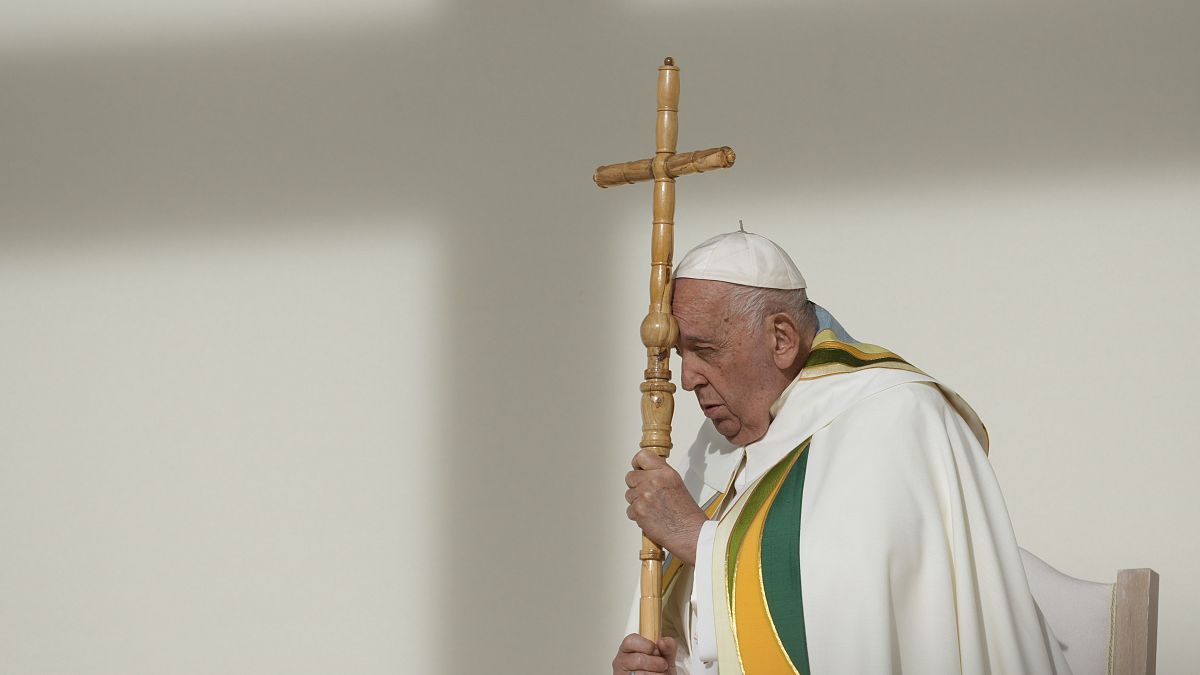Pope Francis recently spoke to a crowd of 39,000 in the King Baudouin Stadium in Brussels, urging all members of the Church to never cover up abuse. He emphasized that evil must not be hidden and called for accountability within the Church. The pontiff acknowledged the pain and helplessness experienced by victims of abuse and their families, stating that there is no place for the covering up of abuse. Despite a positive response to his words, controversy arose after his comments during an in-flight press conference. Francis praised Belgium’s late King Baudouin for abdicating for a day in 1990 rather than signing legislation legalizing abortion, calling him a “saint” and initiating his beatification process.
During his visit to Belgium, Pope Francis encountered a difficult history marred by cases of sexual abuse and cover-ups by the Church. He met with 17 abuse survivors and listened to their stories of trauma and suffering, as well as the church’s inadequate response to their reports. Calls for compensation for those who have suffered came from Belgian Prime Minister Alexander de Croo, the King of Belgium, and the survivors themselves. The main purpose of the trip was to commemorate the 600th anniversary of the Leuven/Louvain Catholic University, the oldest Catholic university in the world and a key institution for the Vatican in Belgium.
Belgium has a troubled past with abuse and cover-up within the Catholic Church, exemplified by the case of Bruges bishop Roger Vangheluwe. After admitting to sexually abusing his nephew for 13 years, Vangheluwe was allowed to retire quietly in 2010. Pope Francis finally defrocked him this year, 14 years after his confession, addressing a longstanding issue before his visit to Belgium. The public outrage and calls for gender reform in Belgium caught Francis and his entourage by surprise, as the country’s intellectual elite demanded changes within the Church.
Despite the calls for change, Pope Francis has remained firm on certain issues, such as ordaining women as priests and allowing women to serve as deacons. He ruled out the possibility of women priests and refused to discuss women serving as deacons at the Vatican’s upcoming synod due to time constraints. While he acknowledged the need for reform within the Church, particularly regarding sexual abuse and cover-ups, Francis’s stance on women’s roles in the Church has faced criticism. The controversy surrounding his comments in Belgium highlights the ongoing challenges faced by the Catholic Church amidst calls for accountability and reform.
In conclusion, Pope Francis’s visit to Belgium shed light on the Church’s difficult history of abuse and cover-ups, prompting calls for accountability and reform. Despite addressing the issue of abuse during his visit and meeting with survivors, controversy arose over his comments on gender and abortion. The pontiff’s firm stance on certain issues, such as ordaining women as priests and appointing women as deacons, has faced criticism from those advocating for change within the Church. As debates continue within the Vatican and around the world, the need for accountability, transparency, and reform within the Catholic Church remains a pressing concern.








